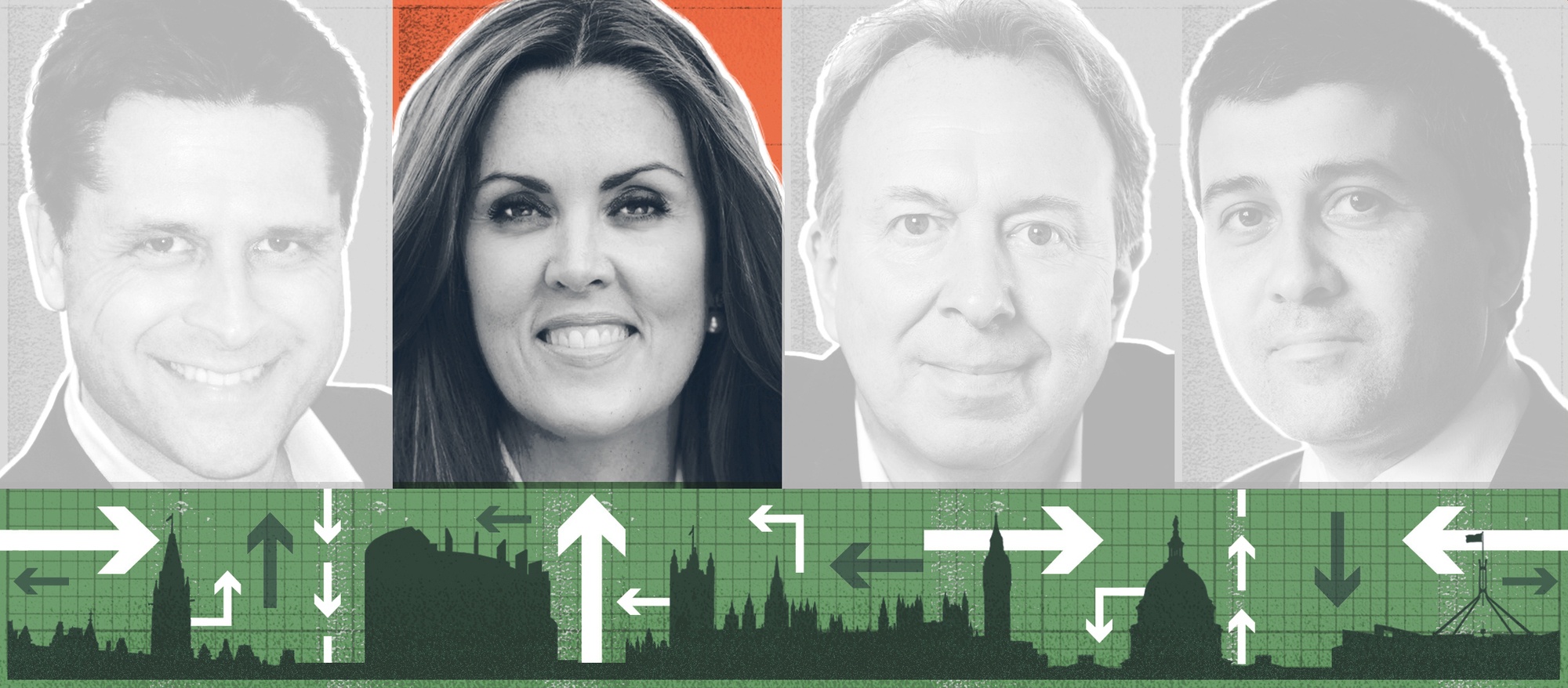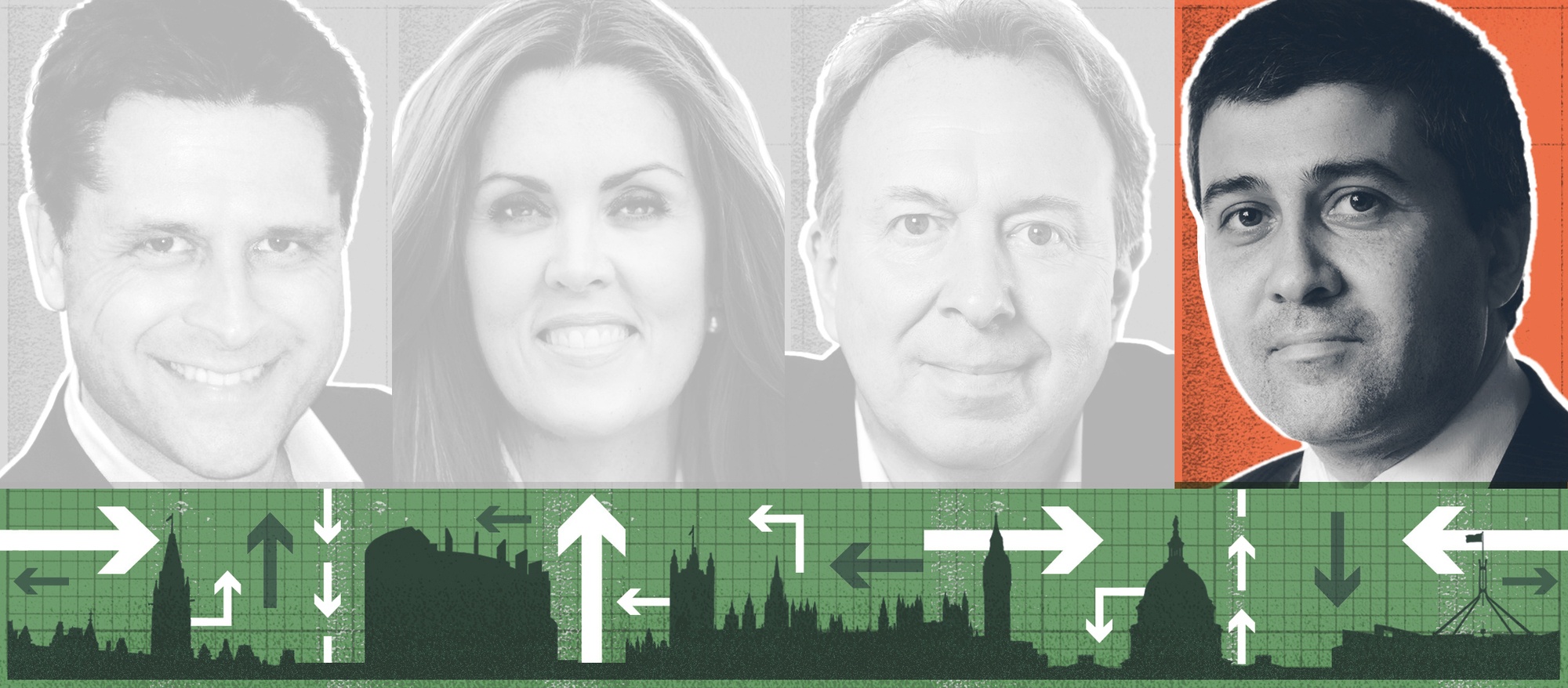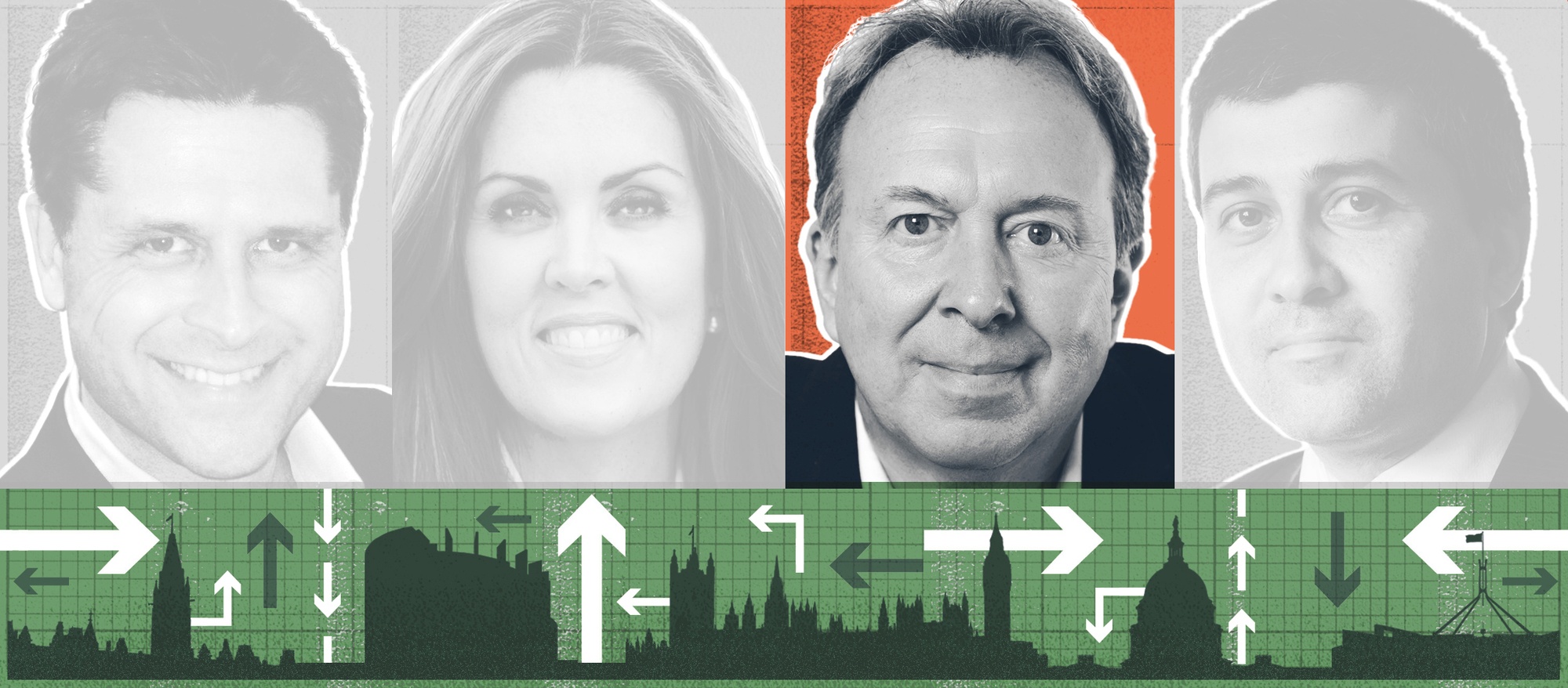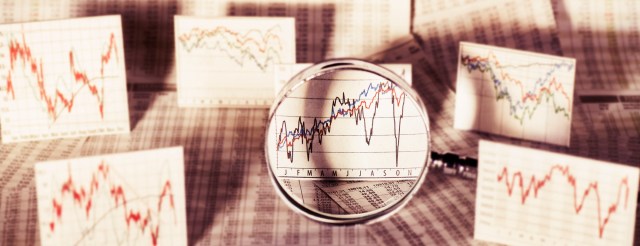Is voter volatility, reflecting general dissatisfaction with the way politics has long been conducted, more significant than a shift to left, right or any other ideological direction?

Peta Credlin: “People haven’t changed. The fundamentals of economics and politics haven’t changed. Perhaps the circumstances of the West are more difficult due to the rise of China and the challenge of Islamism. In the end, the popular mood is a function of how countries respond to challenges as much as the challenges themselves.
“I think it’s more a failure of leadership than any new and more serious crisis. There have been periods of poor leadership before. The 1930s come to mind and in a different way, the 1970s – certainly in Australia. At present, you would have to say that the Left are winning the game organisationally, and have put in place a funding model via trade unions and professional activist groups that leaves the Centre-Right for dead. Conservatives have been complacent and relied on the motivation of aspiration, and the family, to support freedom, the individual and a values-driven leadership – but that’s now under challenge with the way the Left have taken hold of schools, universities and sections of the media.
“I am still optimistic and want to believe that eventually better leaders will make their way forward and a period of eclipse will turn into a period of resurgence. One thing is for certain, the pace is so much faster in political life that we may not see governments survive beyond a single term. Now that’s bearable if you’re looking at five-year parliamentary terms in the UK, even four for the US president, but parlous for good government in the case of Australia’s three-year parliamentary terms.”

Sunder Katwala: “Greater volatility does seem stronger than any directional shift in most countries. Germany looks like an important exception: a stronger economic performance reinforcing strong public support for the broad centre which is deep-rooted in the Federal Republic’s democratic political culture. One reason for the volatility is that we have increasingly polarised politics on very fine margins. In the United States, ever since the Bush-Gore contest of 2000, the nation has been split down the middle. There has been a sense of both sides dialling up the heat: there is a lot of energy in the politics of a culture war on both sides. There are bridge-builders too – Obama certainly tried – but they appear in decline. Non-Trump Republicans have been much more timid than seemed likely in the campaign. And one of the challenges of any effort to depolarise is that neither side wants to risk disarming if the other side is going to stay in the trenches. I am not sure there is quite the same appetite – or institutional encouragement – of an ever-more-heated polarisation outside the United States.
“In Britain, the awareness that we are a more divided, fragmented and anxious society than we perhaps have imagined is a driver to pay more attention to overlooked issues – whether that is immigration or inequality – but I think there is also an aversion to an ever-more-polarised politics. There is a big contrast with how people talk about Brexit on social media and at the school-gate, for example. Many of the political projects with momentum do have the ability to mobilise, but often with an intense appeal to a relatively narrow group, on both the populist right and left. Part of the reason for the volatility and unpredictability is that politicians seem better at engaging their own tribes than finding the common ground across them.”

Steve Richards: “The two are connected. Since the early 1980s there has been a fairly narrow divide between the mainstream left and right in much of the Western world. The differences were still significant but not as overtly wide as they were before. The coming together of the two sides led to a different way of conducting politics, more focus-group driven and media-obsessed. Mainstream political leaders tried pathetically hard to please voters only to alienate them even more. As they became increasingly cautious in their public utterances they seemed less human and more shifty. While ideological debates became less vivid there was a greater focus on political process, ‘spin’, ‘trust’, ‘sleaze’, and non-partisan but relatively trivial themes that alienated voters even more than the more significant rows over big ideological issues had done previously.
“It was always a myth to suggest that there was no longer a left and a right divide in the modern era. In reality there are different ways of addressing, say, the demands for a better health service and in framing economic policy at a time of sweeping change. The division is becoming more vivid again and the arguments that arise from ideological differences will lead to a different way of conducting politics. The focus group and opinion poll will be viewed slightly more sceptically. The battle over ideas will become more important. Electoral volatility partly reflects the limited choice over the last two decades. If parties are similar, why not transfer support from one to another, or lose interest altogether? The rise of outsiders has reflected the wider disillusionment with mainstream politics but if outsiders win elections they are doomed to become insiders too.
“The juxtaposition of ‘inside’ and ‘outside’ is ultimately a shallow one. Some argue that the most important divide is between ‘open’ and ‘closed’, those that support free trade and those who do not being one example. This is an important division and has been for centuries. But the debate about ‘open’ versus ‘closed’ does not provide solutions to many modern questions. A deeper and more thought-through debate that at least recognises the validity of left and right as a significant ideological divide would help to bolster fragile democracy. That debate is starting to take place.”









Join the discussion
Join like minded readers that support our journalism by becoming a paid subscriber
To join the discussion in the comments, become a paid subscriber.
Join like minded readers that support our journalism, read unlimited articles and enjoy other subscriber-only benefits.
Subscribe